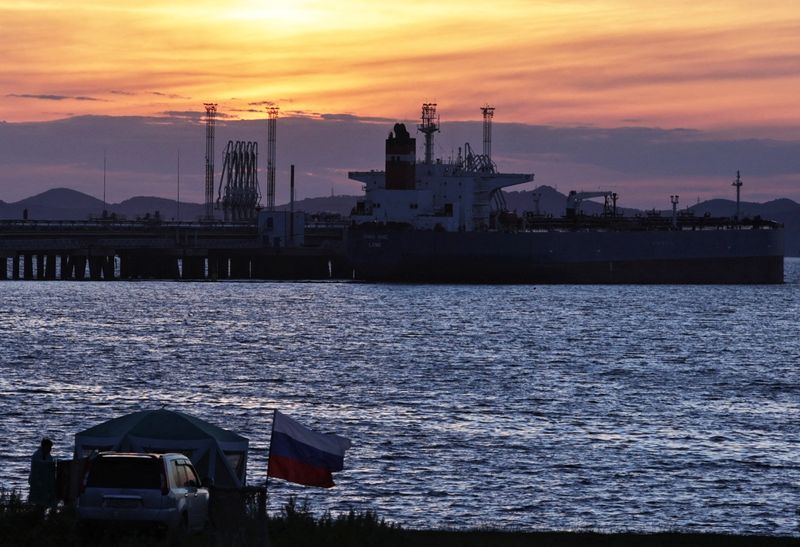
© Reuters. A view shows Chao Xing tanker at the crude oil terminal Kozmino on the shore of Nakhodka Bay near the port city of Nakhodka, Russia August 12, 2022. REUTERS/Tatiana Meel
LCO
+0.37%
Add to/Remove from Watchlist
Add to Watchlist
Add Position
Position added successfully to:
Please name your holdings portfolio
Type:
BUY
SELL
Date:
Amount:
Price
Point Value:
Leverage:
1:1
1:10
1:25
1:50
1:100
1:200
1:400
1:500
1:1000
Commission:
Create New Watchlist
Create
Create a new holdings portfolio
Add
Create
+ Add another position
Close
By Sonali Paul
MELBOURNE (Reuters) – Oil prices fell in early trade on Tuesday as recession fears dominated headlines out of the World Economic Forum’s meeting in Davos, draining optimism that stoked the market last week on prospects of a fuel demand recovery in top oil importer China.
Brent crude futures were down 38 cents, or 0.5%, at $84.08 at 0114 GMT, extending a 1% loss in the previous session.
U.S. West Texas Intermediate (WTI) crude futures slid $1.16, or 1.5%, to $78.70 from Friday’s close. There was no settlement on Monday due to a U.S. holiday for Martin Luther King Day.
In a bearish survey released at the Davos summit, two-thirds of private and public sector economists polled expected a global recession this year, with about 18% considering it “extremely likely”.
At the same time, a survey of chief executives’ views by PwC was the gloomiest since the firm launched the poll a decade ago.
“Brent crude has gained nearly 10% over the past 10 days as optimism over China’s reopening boosted sentiment. However, the outlook for the rest of the global economy is uncertain,” ANZ commodity analysts said in a client note.
ANZ also pointed to a jump in crude supply from Russia weighing on the market, with seaborne exports having risen to 3.8 million barrels per day last week, the highest level since April.
Reuters reported on Friday that at least four Chinese-owned supertankers were shipping Russian Urals crude to China and a fifth supertanker was shipping crude to India, with the oil available at a discount following the imposition of an oil price cap by the Group of Seven (G7) nations.
A rise in the dollar off seven-month lows also dragged on oil prices, as a stronger greenback makes oil more expensive for those holding other currencies.
Source: Investing.com

























